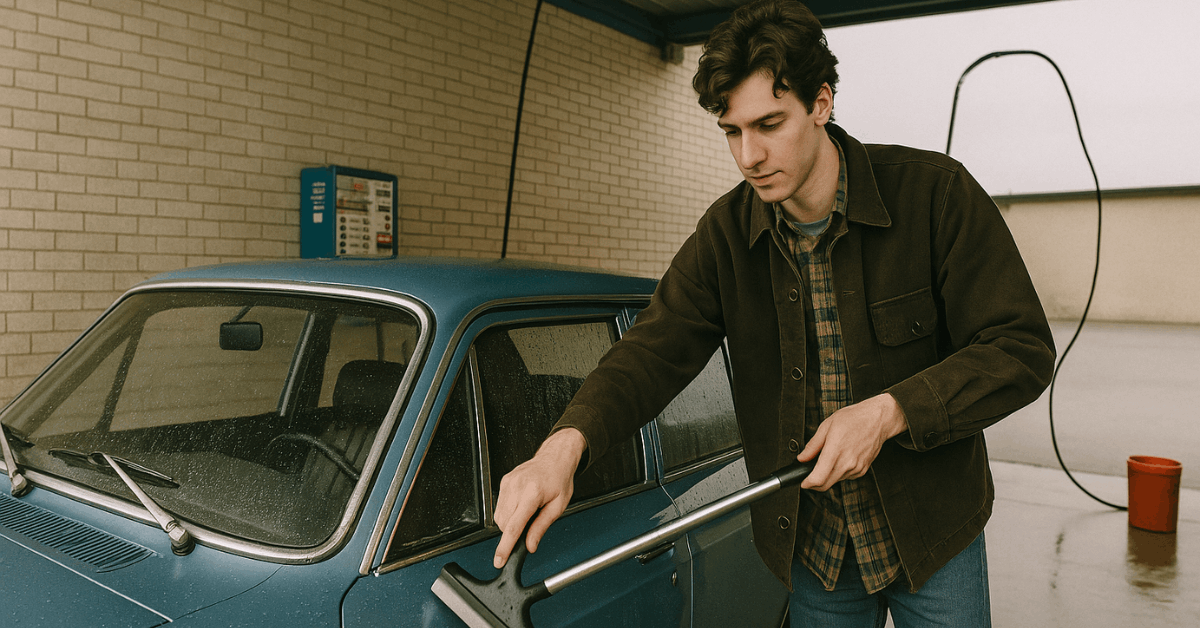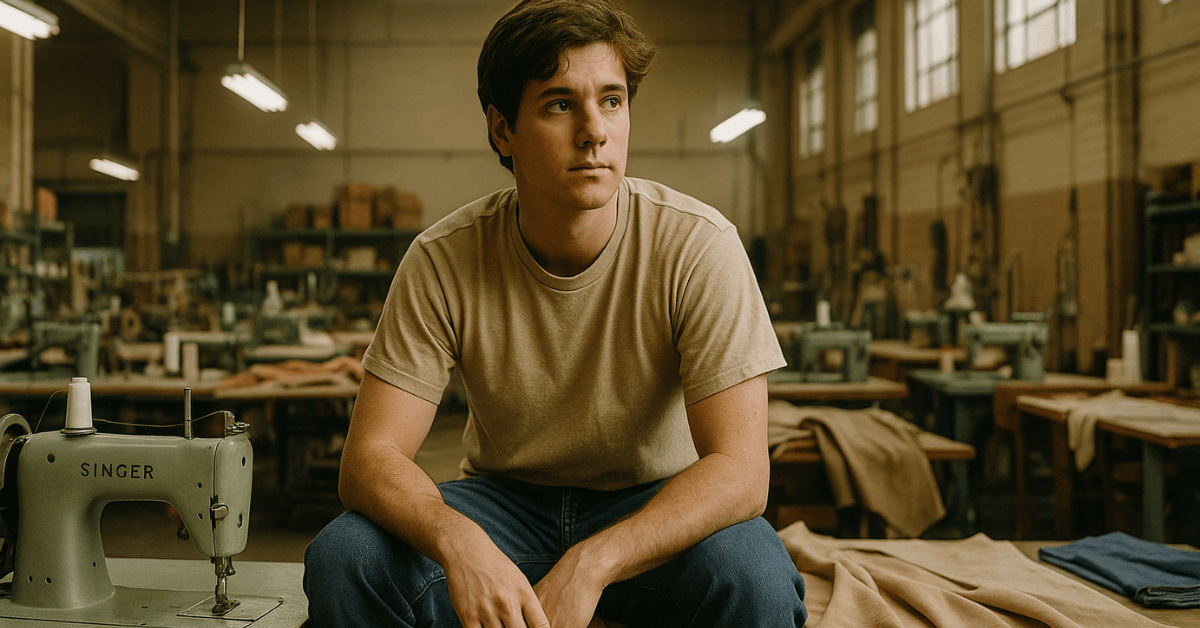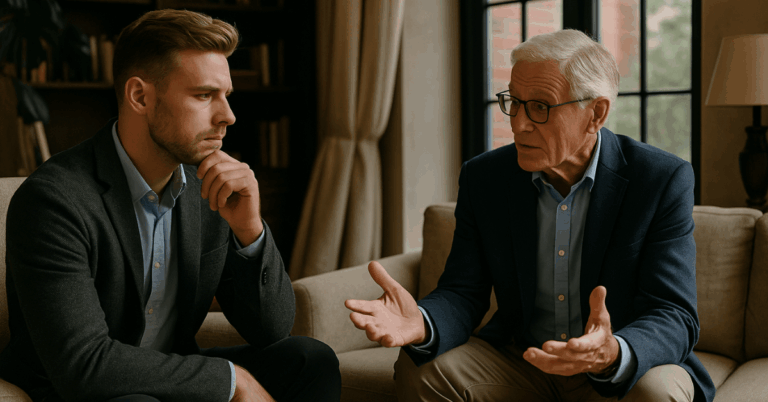Many millionaires today had humble or difficult beginnings. These curious facts about millionaires offer a surprising perspective.
You’re about to learn how unpredictable success can be. Each fact shows what they went through before building their fortunes.
Millionaires Before They Were Famous
Many successful people had unglamorous beginnings. Millionaires, before they were famous, often faced financial struggles, failures, or rejection.
Some worked ordinary jobs or lived in difficult conditions. Others dealt with learning disabilities, bullying, or social setbacks.
These stories show how persistence can overcome hard beginnings. They remind you that success comes from effort, not just opportunity.

10 Interesting Truths About Millionaires Before They Were Famous
The path to wealth is often full of surprises. This section dives into 10 curious facts about millionaires before they achieved fame and fortune.
1. Steve Jobs Sold His Car to Fund Apple
Steve Jobs didn’t start Apple with millions in his account. He and Steve Wozniak sold personal items to fund their first prototype.
Jobs sold his Volkswagen van, and Wozniak sold his HP calculator. This allowed them to build the Apple I in Jobs’ parents’ garage.
Their willingness to risk comfort helped spark a tech revolution. It shows how sacrifice can lay the foundation for innovation.
2. Oprah Winfrey Wore Potato Sacks in Childhood
Oprah came from deep poverty. She once used potato sacks as dresses because her family couldn’t afford clothes.
Classmates bullied her for it, but she kept her focus. Even then, she was passionate about public speaking and storytelling.
Her struggles shaped the voice she later used to inspire millions. It’s a clear reminder that rough starts don’t define you.
3. Elon Musk Was Severely Bullied in School
Musk’s early years in South Africa were marked by difficulty. He was beaten so badly by classmates that he was hospitalized.
He spent most of his time reading science fiction and programming. This isolation helped him develop a deep interest in technology.
Musk later utilized this drive to build companies such as Tesla and SpaceX. His story is about turning adversity into focus.
4. Jeff Bezos Flipped Burgers at McDonald’s
Jeff Bezos worked at McDonald’s as a teenager. He learned how systems work behind the counter.
This experience helped him understand the importance of efficiency and structure, which he later applied at Amazon. He was also part of a space-focused student group in high school.
Bezos combined practical work with vision. It helped prepare him to lead one of the world’s largest companies.
5. J.K. Rowling Lived on Welfare While Writing
J.K. Rowling wrote the first Harry Potter book while living on state benefits. She was a single mom struggling to get by.
She wrote in cafes while her baby slept beside her. Her manuscript was rejected by multiple publishers.
Eventually, one publisher took a chance, and the rest is history. Rowling’s story proves that persistence matters more than perfect conditions.
6. Richard Branson Struggled with Dyslexia and School
Richard Branson dropped out of school at 16. He couldn’t keep up due to dyslexia. He started a student magazine and later launched Virgin Records.
His creative thinking outweighed his academic performance. Branson used street smarts and bold moves to build a global brand. His journey shows that school isn’t the only path to success.
7. Daymond John Sewed Hats After Work
Daymond John worked at Red Lobster during the day. At night, he sewed hats and clothes for a brand he called FUBU.
He asked local rappers to wear his designs, turning FUBU into a streetwear success. He used $100,000 in orders to convince banks to lend money.
John turned sweat equity into a clothing empire. This story highlights the value of patience and action.
8. Howard Schultz Grew Up in Public Housing
Howard Schultz grew up in the Brooklyn projects. His dad worked blue-collar jobs with no benefits.
Schultz wanted to build a company that cared for workers. Later, he created Starbucks with that mission.
Employees received stock options and healthcare. Schultz’s background shaped his business values.
9. Sara Blakely Failed the LSAT Twice
Blakely wanted to become a lawyer, but she failed the LSAT two times. Instead, she sold fax machines door to door.
During this time, she came up with the idea for Spanx. She used $5,000 in savings to launch her product.
Blakely’s setbacks helped redirect her toward a billion-dollar idea. Her path shows how failures can spark better outcomes.
10. Jay-Z Sold CDs from His Car
Jay-Z couldn’t get a record deal early on. So he started selling CDs from the trunk of his car. He used the money to start Roc-A-Fella Records.
Jay-Z invested in himself when no one else would. That gave him full creative control. His independence helped turn him into a business mogul.
Beyond the Wealth: What Their Past Reveals?
Understanding the early lives of millionaires can alter your perspective on success. These stories go beyond entertainment—they reflect human resilience.
Before achieving wealth, each of these individuals made choices that reflected their values. They took risks, embraced failures, and learned quickly.
The key wasn’t perfection but adaptation and effort. Their pasts explain their futures in ways money alone never could.

Lessons from Their Journeys
Each millionaire’s early life offers valuable insight for anyone pursuing success. You can learn practical and personal lessons from what they endured.
Their experiences show the importance of mindset, not just skill or luck. Hardship, creativity, and perseverance were common traits in their stories.
These qualities helped them seize opportunities and recover from setbacks. By studying these early struggles, you gain realistic and inspiring tools for your own path.
Final Thoughts: Everyone Starts Somewhere
These curious facts about millionaires remind you that success doesn’t start with riches. Many began with struggles, rejections, and odd jobs.
What matters is the mindset, consistency, and action behind each move. Their stories prove that your start doesn’t limit your finish.












